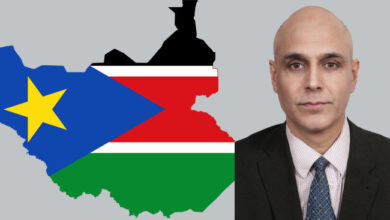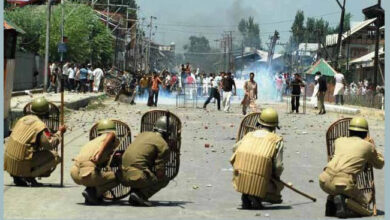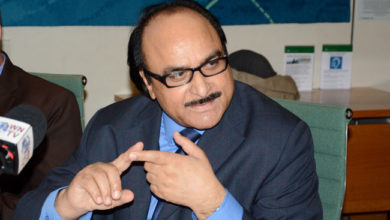G20 Summit in Srinagar, Kashmir: A Soft Power Tactic to Distract from Ongoing Human Rights Abuses

Written by: By: Ayesha Sharif
Due to capitalism, globalization, easy migrations, advanced technologies, changing geopolitical scenarios, and social resources, the nature of warfare has changed. States pursue their national interest using soft power projection, propaganda and information warfare, and diplomacy. Thus, in this regard, human rights agencies and advocates of democracy and freedom of speech should keep an eye on the tactics utilized by governments and non-state actors in disputed territories and on oppressed communities. One such dispute is Kashmir, where the fascist Modi regime, which is an advocator of Hindutva ideology, has been committing serious war crimes and human rights violations.
India has deployed over a half million troops to suppress the Kashmiris ‘ongoing freedom movement.
Today, Kashmir is classified as the world’s most militarized zone with a 1:8 military and civilian ratio. Along with traditional tactics of deploying the military and suppressing the movement for self determination, the Indian occupation authorities have been using house arrest, lockdown and violence as weapons of war in the region. While on the other hand, India is utilizing its soft power to strengthen its control over the territory.
After revoking articles 370 and 35A, India is hectically engaged to change Kashmir’s demographics, more importantly its unique culture, language and religion, which distinguishes it from India.
Kashmiris’ identity is virtually under threat. But now the Indian government has introduced a new domicile law which is granting citizenship to non-Kashmiris and within a day after the new law passed, 18 lakh people qualified for state-subjects of J and K.
At a time when political, social and economic life remains critically suppressed in the region and every Kashmiri feels suffocated in his/her homeland, India has arranged the G20 Tourism group meeting scheduled to be held in Srinagar from May 22 to May 24. In this 3-day event, heads of G20 members, various delegations from guest countries and international organization like UNWTO and the International Labour Organization are expected to participate in multiple group meetings. Apart from the meeting, the delegations will be taken to different sightseeing tours to promote the so-called normalcy narrative on Kashmir.
The five key priority areas of G20 tourism track meetings so far include greening of the tourism sector, harnessing the power of digitalization, empowering youngsters with skills, nurturing tourism MSMEs, startups and the private sector, and rethinking the strategic management of destinations. All this is planned while the state is divided into two union territories and its special status is abolished after revocation of Article 370 and 35a.
This Indian move is in violation of Geneva Convention on Disputed territories , International Law and United Nations Resolutions about Kashmir. Being the 5th largest economy, India, under the garb of so-called development and tourism, is shamelessly trying to normalize the situation by arranging high-profile meetings/conferences in the region, which happens to be a disputed territory awaiting final settlement.
The summit could provide an opportunity for India to present a sanitized version of the situation in Kashmir, diverting attention away from the political repression. Clearly, India wants to incentivize the Kashmir issue. This conference may result in creating opportunities for direct foreign investment, in the valley, which further erodes its homogeneous culture.
Pakistan, which is party to the conflict, has been making diplomatic efforts to halt the process by reaching out to its allies like China, Saudi Arabia and Turkey that are part of the summit. But on the other hand India’s strong lobby, economic power and its allies from the west make India’s position strong despite the ongoing human rights violations.
Indian academia and the lobby is spread across the world. They are involved in propaganda warfare to deceive international society. They have generated loads of biased discourse on the Kashmir issue to shift the focus from human rights violation towards money and investment. If the conference takes place in Kashmir, it will certainly strengthen the BJP government’s narrative, which is totally baseless and fabricated. But the role of the international community will be crucial in this regard. They should not turn a blind eye towards the cause. Pakistan, on the other hand, needs to employ all its diplomatic efforts, soft power and academia to get the attention of international leaders and the public.
The writer is a student of BS International Relations at NDU / Intern KIIR
Disclaimer: The views and opinions expressed or referred to in this article do not necessarily represent those of WNTV or any of its staff or editors. WNTV’s aim is to provide, so far as possible, a platform for external contributors with limited editorial intervention . Accordingly, readers are asked to note that the publication of articles on this site is not in itself to be taken as WNTV’s endorsement of any reported third party position, policy or statement.





